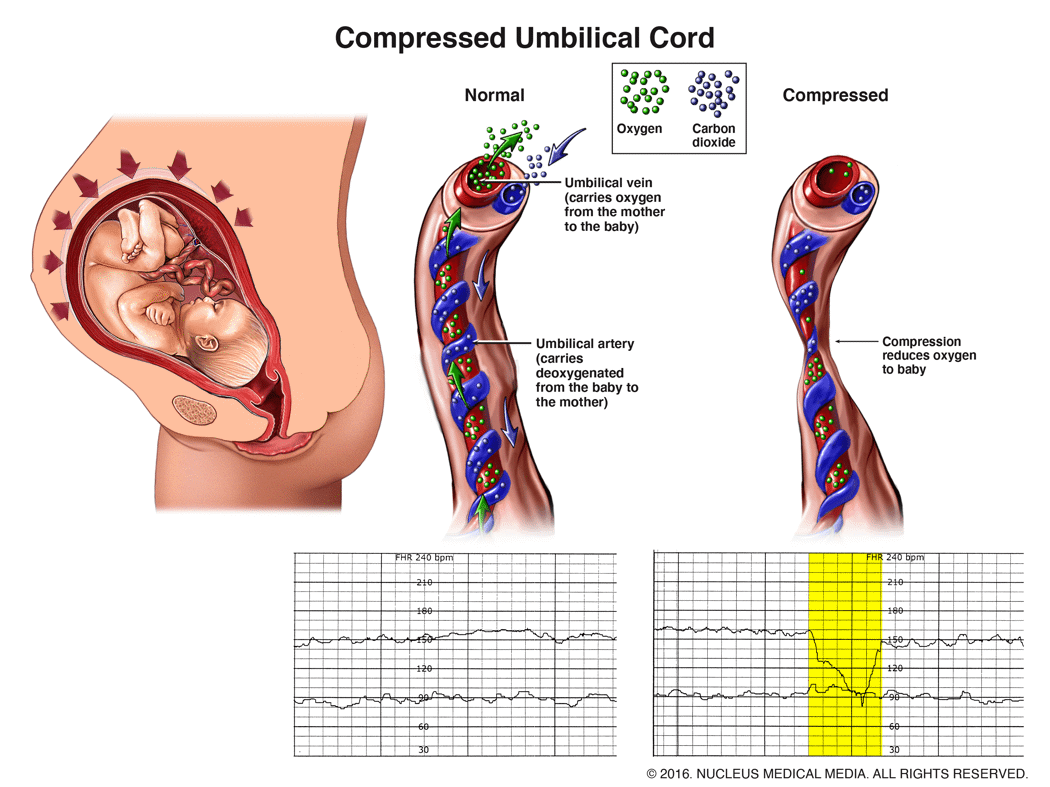When talking to your doctor about pregnancy complications, you may have discussed the topic of umbilical cord problems. There are numerous ways the umbilical cord might be compromised during pregnancy or delivery. Most of these issues are minor, fortunately, and can be addressed through prenatal care or emergency procedures. You and other expectant parents in Maryland should not worry too much about umbilical cord problems, but it can help to know what you might encounter.
Give us a call or fill out a form for a free consultation.
What is Umbilical Cord Compression?
The umbilical cord is one of the most important structures during pregnancy, which carries nutrients and oxygen from you to your unborn baby. When the cord is compromised, your baby might become malnourished or suffer the effects of oxygen deprivation. Serious umbilical cord problems can result in brain damage or the death of the baby.
What Causes a Compresses Umbilical Cord?
Umbilical cord compression occurs when the baby’s weight, the placenta, or the vaginal walls put pressure on the cord during pregnancy, labor or delivery. Cord compression during pregnancy is a common problem. In fact, according to the American Pregnancy Association, compression occurs in about one out of every 10 deliveries.
The four leading causes of cord compression during pregnancy are:
- Prolapse into the Cervix - Prolapse occurs when the umbilical cord slips into the birth canal after the mother's water breaks. As the baby descends into the birth canal, the umbilical cord can become compressed, cutting off their oxygen supply.
- Nuchal Cord - This condition occurs when the umbilical cord gets wrapped around the baby's neck. It is more likely in cases where the umbilical is longer than 60cm.
- Knotted Cord - As the baby moves around in the womb the umbilical can become knotted. This condition only occurs in about 2% of pregnancies and is not inherently dangerous. However, if the knot becomes too tight the umbilical cord can become compressed.
- Uterine Contractions - Minor cord compression is natural during labor as the uterine wall contracts. However, the position of the umbilical and the severity of contractions can become dangerous. It is essential for doctors and nurses to monitor fetal heart rate and oxygen levels in case intervention is necessary.
Is Cord Compression Always Dangerous?
Fortunately, the majority of umbilical cord compression incidents are mild and don't last long. For example, your baby might temporarily put pressure on the cord while moving around during late pregnancy, but moving again can relieve the pressure.
During your prenatal visits, your doctor will perform ultrasounds and listen to the baby’s heartbeat to screen for signs of umbilical compression. A monitor during labor and delivery will constantly check for signs of fetal distress. If necessary, your doctor may take measures to hasten delivery or perform an emergency cesarean section.

If you are worried about umbilical cord problems, it may give you peace of mind to talk to your doctor. Competent prenatal care is necessary for your health and safety, as well as your baby’s.
If your baby has suffered an umbilical cord injury,
contact our firm for a free consultation today.
Other Related Topics:


